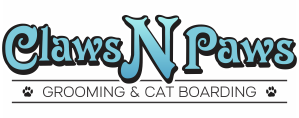 Due to current conditions, people around the world are feeling lonely. The social quarantine makes it impossible to see friends and family who do not live with you. While human contact is scarce, you may find another solution at your local animal shelter.
Due to current conditions, people around the world are feeling lonely. The social quarantine makes it impossible to see friends and family who do not live with you. While human contact is scarce, you may find another solution at your local animal shelter.
The Company of an Animal
If you are feeling lonely, having a pet can help tremendously. Animals provide a unique and unconditional love that cannot be replicated. By adopting a pet, you have a companion for the rest of their life. Pets are also a great remedy for boredom. Having a pet introduces routine into your life; they must be fed and cleaned up after at certain times in the day. Even children can get involved in this routine, eliminating boredom and instilling responsibility.
Adopt, Don’t Shop!
There are many advantages to adopting rather than buying your pet. Buying a pet from a pet store or advertisement supports mass breeding facilities (commonly referred to as “puppy or kitty mills”). These mass breeding facilities promote horrible living conditions and cruelty towards animals. Meanwhile, when you adopt, your money goes directly into saving more lives. Adopting a pet saves their life and prevents shelter overcrowding. Plus, you can ensure that your pet has received love and care that they would not receive from a mass breeder.
Shelters in Need
Animal shelters are currently asking for help from the public. Many are closing permanently in light of COVID-19; pets at these shelters will be euthanized if not adopted. Check to see if any shelters near you will be closing their doors forever.
Other shelters are still holding adoptions while observing social distancing. If you are located nearby, Orange County Animal Care is holding adoptions and pet redemptions by appointment only. Browse the website of adoptable pets, then set up an appointment over the phone.
If you are not looking to adopt, yet still want a temporary animal fix, consider fostering. Fostering young animals requires time and dedication, but it is an experience you will never forget. Shelters and rescue organizations are constantly looking for foster families. Research local fostering options in your area.
Claws N Paws Day Spa provides professional grooming services to both cats and dogs. To observe social distancing, Claws N Paws Day Spa and Cat Boarding are currently closed. For regular updates and more information on our various services, follow our Facebook at Claws N Paws Day Spa or our Instagram @clawsnpawsdayspa_.





